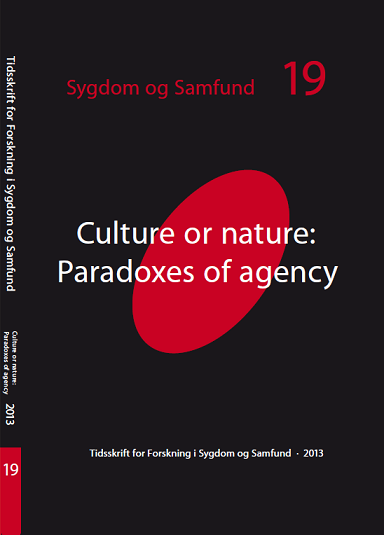Publiceret 2013-11-23
Citation/Eksport
Resumé
For patients suffering from acute kidney failure technology is the only means of survival until a kidney graft can be secured1 - a process which may take several years. In this article I focus on patients’ ongoing, situated, and embodied practices of knowing and doing as part of their caring for kidney failure. In these practices the action of blood, veins, needles, and the dialysis machine are of central import. I argue that kidney failure is »done« through a variety of cultural practices, including medical technology. It is a process of material re-shaping I term ‘vein action’. The concept of "doing" is elaborated upon by linking it to theories of neo-materialism and particularly Karen Barad’s notion of intra-activity. I investigate how flowing of blood between the patient and the dialysis machine is constituted by analyzing the material and performative qualities of these entities as part of living with kidney failure. I ask how does the materiality of the body, needle, and machine affect the doing of dialysis, and by extension the doing of kidney failure, in an everyday context? What does doing dialysis tell us about the nature of care-oriented agency?

